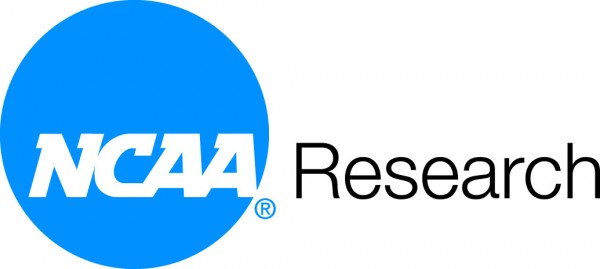I always find the annual NCAA survey fascinating, as both my brother and I were student athletes for many years. This latest one had some very interesting findings. Here’s all the info from SportsOneSource:
According to a comprehensive survey from NCAA Research, many NCAA student-athletes began specializing in their sports “at what experts consider a very early age (e.g., before age 12),” especially in sports like ice hockey, tennis (DI and DII only) and soccer.
“Many NCAA athletes think youth in their sport play in too many contests and a number of them (especially men) wish they had spent more time sampling other sports when they were young,” NCAA stated in its report. “Many current NCAA student-athletes had high parental/family expectations of playing college and/or professional/Olympic sports that started at a young age. This is especially true among participants in certain DI/DII sports. These family expectations appear to carry over to cases of unrealistic pro expectations among the student-athletes themselves.”
The report includes surveys of men and women who specialized in their sport across DI, DII and DIII by the age of 12. In men’s, soccer and tennis ranked particularly high across divisions, followed by baseball, ice hockey, basketball and swimming. Among women, gymnastics was by far the highest among Div. 1 athletes, followed by tennis, soccer, basketball and swimming.
The Youth Sports Experiences section also includes aspects around involvement in club teams and aspirations around turning professional or becoming an Olympian.
The third edition of the GOALS study was unveiled at the NCAA Convention that was held in San Antonio from Jan. 14 to 16. Survey responses were received from more than 21,000 student-athletes at nearly 600 schools across Divisions I, II and III. Student-athletes were surveyed during spring 2015 by faculty athletics representatives from around the nation. The previous GOALS surveys were released in 2006 and 2010.
Student-athletes feel their time spent in college sports has increased their sense of personal responsibility, honed their teamwork skills and enhanced their work ethic. A vast majority also believe participating in college sports has a positive effect on their leadership skills, their values and ethics, self-confidence, time management, understanding of diverse cultures, study skills and commitment to volunteerism.
The current GOALS survey covered the following general topics:
- College athletics experience.
- College academic experience.
- College social experience.
- Recruitment.
- Health and well-being.
- Time commitments.
- On-campus support.
- Finances.
- Opportunity to provide open-ended comments.
When responding to their opinions on academic experiences, more than three-quarters of the respondents (both men and women) said that their experience has been positive.
Additionally, a majority of student-athletes (approximately 60 percent in Division I, 65 percent in Division II and 70 percent in Division III) reported feeling positive about their ability to keep up with their classes during the season.
More than a third of student-athletes said athletics participation has prevented them from taking desired classes. However, in many Division I sports, those numbers are down more than 10 percentage points compared to the last GOALS survey, conducted in 2010.
Such improvements may be related to taking courses online. Fifty-nine percent of Division I, 54 percent of Division II and 27 percent of Division III participants reported taking online courses during their college careers. Most student-athletes who indicate athletics has impacted course choices report not having regrets about those choices.
Regarding time demands, current college athletes are reporting more time devoted to athletics pursuits than was reported in 2010. This in-season increase occurred across divisions for both men and women.
In 2010, Division I student-athletes said they devoted 32 hours per week in-season compared to 34 hours per week in 2015. In Division II, student-athletes reported 30 hours per week in 2010 compared to 32 hours per week in 2015. And in Division III, college athletes reported 27 hours per week in 2010, compared to 28.5 hours a week in the latest survey.
While the numbers for time demands for athletics increased, so did the time student-athletes say they committed to academics.
In Division I, the time devoted to academics increased 35.5 hours a week in-season in 2010 to 38.5 hours per week in the latest survey. In Division II the time rose from 35.5 hours per week to 38.5 hours, and Division III increased from 38.5 hours per week in 2010 to 40.5 hours per week.
In general, student-athletes don’t mind devoting time to their sports if they feel athletic activities are being conducted efficiently and they can pursue their other interests.
College campuses have generally seen an increase in the number of students experiencing mental health issues such as anxiety and depression.
The 2015 GOALS data highlights similar concerns among student-athletes, with about 30 percent self-reporting that they have been intractably overwhelmed during the past month. That percentage has increased in each division since the 2010 GOALS study.
The NCAA Sport Science Institute released a Mental Health Best Practices handbook that will be sent to university presidents, directors of athletics and conference commissioners to help administrators offer help to student-athletes with mental health struggles.
Finally, when respondents were asked which topics they wished their coaches and administrators would talk to them about more frequently, the top responses were:
- Academic success and preparing to get a job after college.
- Maximizing athletic performance (proper nutrition and how to get good or more sleep).
- Balancing academics and athletics while keeping sports in perspective.
A PowerPoint presentation of the report is here.
You can also check out the initial findings (January 2016) of the NCAA GOALS Study of the Student-Athlete Experience here.





Big schools make so much money from sports. They should reward their student athletes a extra year to finish school(if they want). They should be able to eat as much as they want( Steph Curry said he went hungry during his college days). Good informative article by Noah.